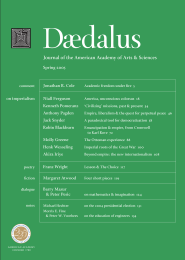Imperialism & the roots of the Great War
In history textbooks, the period from 1871 to 1914 is known as the age of imperialism. During this period, the European powers extended their control over the rest of the world to an extent never seen before. In 1870, Dutch control over the Netherlands Indies was effectively limited to Java and a few outposts on the other islands. French rule in Indochina was virtually negligible, while the British were only just beginning to reestablish control of India after the Mutiny of 1857. By 1914, the Europeans ruled over nearly the whole of South and Southeast Asia. Similarly, in 1870, Africa was still largely terra incognita for the Europeans. Settlements were limited to South Africa and Algeria, although there were a few scattered European possessions on the coast of West Africa, as well as the Portuguese territories in Mozambique. However, by 1914, European rule had spread to the entire continent, with the exception of Liberia and Ethiopia. At the same time, European influence also grew in the Ottoman Empire, Persia, and China.
It seems extraordinary that a period during which the European powers so obviously conquered the world is also generally considered to have been a period of relative tranquillity, sometimes called the age of armed peace. This can be explained by the fact that most historical texts have been written by Europeans and that Europe experienced a period of prolonged peace between 1871 and 1914.
Still, in the imperial hinterlands, wars were constantly being waged–to colonize new areas and to crush episodic rebellions. The best-known examples of such imperialist conflicts are the Boxer Rebellion in China, the German wars against the Herero people in southwest Africa, the South African War, and Kitchener’s conquest of the Egyptian Sudan. There were many other conflicts that received a lot of coverage in the newspapers of the day, but most have long been forgotten. These include the prolonged struggle of the French against the African resistance leader Samori in West Africa, the Maji-Maji wars in East Africa, the French conquest of Madagascar, and the Dutch wars against Aceh and Lombok in Indonesia. In most cases, annexation preceded war, because resistance came only later. In these instances, the military operations were not considered acts of war, but rather campaigns against rebels.
. . .
